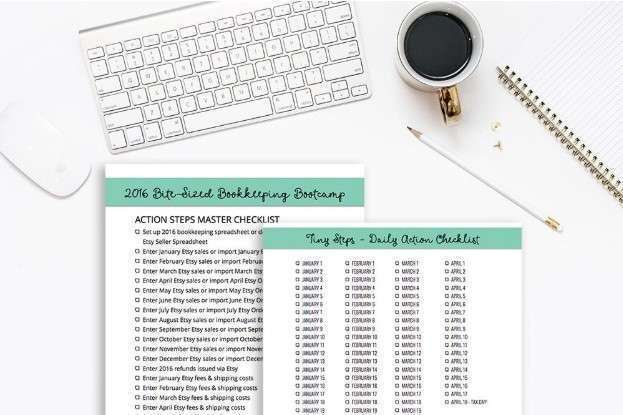Bookkeeping vs Accounting: What’s the Difference?
![]()
However, their years of experience, your state and the complexity of your accounting needs affect the price. However, if your accountant does your bookkeeping, you may be paying more than you should for this service as you would generally pay more per hour for an accountant than a bookkeeper. A bookkeeper usually performs these steps, however, an accountant may step in to complete these tasks, or oversee them as https://www.bookstime.com/ they’re completed by the bookkeeper. Most importantly, your accountant is a valued advisor who can help you with important decision-making. If you’re considering purchasing new equipment or taking out a line of credit, for example, your accountant can help you determine the financial ramifications your decision can have. Our partners cannot pay us to guarantee favorable reviews of their products or services.
- In addition, you must be a member of the Association of Certified Fraud Examiners.
- This includes responsibilities like delivering balance sheets and income statements, confirming account accuracy by preparing trial balances, reviewing documents, and posting entries into accounting software.
- You might start your business by handling accounting tasks yourself, then decide to hand off the day-to-day transaction input to a bookkeeper as you grow.
- Businesses of all sizes need to keep careful track of income, expenses, and transactions, which includes everything from daily sales and invoices to receipts and payroll.
- A bookkeeper must be able to shift focus easily and catch tiny, hidden mistakes in a budget or invoice.
- Our goal is to deliver the most understandable and comprehensive explanations of financial topics using simple writing complemented by helpful graphics and animation videos.
Bookkeepers vs. accountants: What’s the difference?
The articles and research support materials available on this site are educational and are not intended to be investment or tax advice. All such information is provided solely for convenience purposes only and all users thereof should be guided accordingly. Typically, bookkeepers don’t need to have a degree, while accountants are expected to have at least a bachelor’s degree.

Best Accounting Software Solutions (And a Few You Can Skip)
Simply put, bookkeeping is more administrative, concerned with accurately recording financial transactions. Accounting is more analytical, giving you strategic insights into your business’s financial health based on bookkeeping information. When most people think about the difference between bookkeeping and accounting, they are hard-pressed to nail the distinction between each process. While bookkeepers and accountants share common goals, they support your business in different stages of the financial cycle. Bookkeepers don’t need a special certification, but a good bookkeeper is important for an accountant to have accurate financial records. Too often, small businesses tend to leave bookkeeping tasks undone or poorly completed, forcing the company’s CPA to complete these tasks before they can handle higher-level accounting duties.
- When most people think about the difference between bookkeeping and accounting, they are hard-pressed to nail the distinction between each process.
- It’s helpful to understand the different roles of a bookkeeper and an accountant so you can utilize them appropriately as your business grows.
- The bookkeeping process is done according to accounting standards and conventions and is clerical in nature.
- While both accountants and bookkeepers work with financial data, the scope of their work and the responsibilities they carry are quite different.
- Additionally, for progression in their career or for specific jobs, an accountant may need to become a Certified Public Accountant (CPA).
- Someone on our team will connect you with a financial professional in our network holding the correct designation and expertise.
Meet Top Certified Financial Advisors Near You
- An accountant will be more helpful if you are looking for recommendations regarding financial decisions or strategies.
- They’re more interested in the big picture and don’t have the time or inclination to handle recording daily transactions or organizing financial documents.
- The bookkeeper’s role is transactional, laying the groundwork for the accountant’s role, which is more advisory and analytical in nature.
- If you are finding you cannot keep up with your business paperwork and your books are never up to date, you may want a bookkeeper.
- That is likely because both of these roles are responsible for the financial health of a small business or company, and sometimes the terms are used interchangeably.
Public accounting generally pays the most to a candidate right out of school. In particular, the big four firms of Ernst & Young, Deloitte, KPMG, and PricewaterhouseCoopers offer larger salaries than mid-size and small firms. what is a bookkeeper Depending on the city, you can expect to earn between $40,000 and $60,000 your first year as a Big Four accountant. While the companies do not publish salaries on their websites, the benefits can be a large draw.
Accounting Education Disrupted – The CPA Journal
Accounting Education Disrupted.
Posted: Fri, 29 Dec 2023 08:00:00 GMT [source]
The Difference Between Bookkeepers and Accountants
- Your accountant, on the other hand, will be an invaluable resource when it comes to understanding the larger financial picture of your business.
- An experienced bookkeeper can offer advice on ways to create effective financial systems so nothing falls through the cracks on a daily basis.
- Accountants also perform overviews of the financial operations of a business to help it run efficiently.
- The overall best bookkeeping software includes Zoho Books, FreshBooks, Xero, and Intuit QuickBooks.
- All sales and purchases made by your business need to be recorded in the ledger, and certain items need supporting documents.
While accounting can be a lucrative long-term career, most accountants, unlike corporate attorneys or investment bankers, do not command huge salaries during the first few years. There are various career paths for accountants (and some for bookkeepers), from working as a forensic accountant to becoming a financial auditor or an enrolled agent. As an accountant, you may have to crunch numbers, but those are not the only skills needed. It is important to possess sharp logic skills and big-picture problem-solving abilities, as well.
Bookkeepers post debits and credits to record each transaction and make sure all income and expenses are accounted for. These elements are crucial for a business owner to understand the day-to-day picture of their business’s financial health. Additionally, maintaining the books on a daily or weekly basis prevents having to play catch up when tax time rolls around. A key part of the accounting process is analyzing financial reports to help you make business decisions. The result is a better understanding of actual profitability and an awareness of cash flow in your business. Accounting turns the information from the general ledger into insights that reveal the bigger picture of the business, and the path the company is progressing on.

Distinct Roles and Responsibilities
The point here is that hiring a CFA means bringing highly advanced accounting knowledge to your business. A CPA is an accountant who has met their state’s requirements and passed the Uniform CPA Exam. They must also meet ongoing education requirements to maintain their accreditation. Each sale and purchase your business conducts must be recorded in the ledger and some items will need documentation.


Leave a Reply